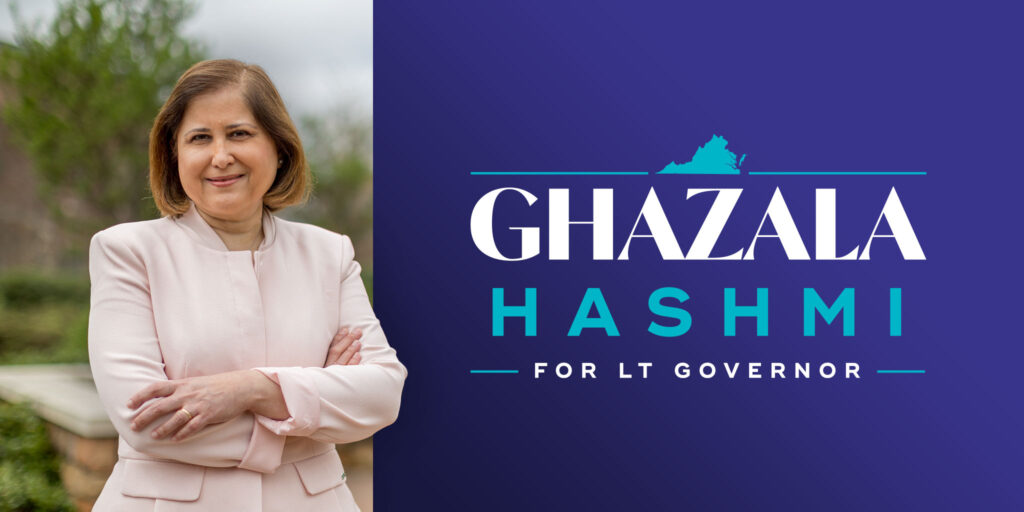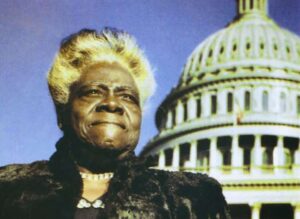
Major Takeaways
Ghazala Hashmi made history as the first Muslim woman and one of the first Indian Americans elected to statewide office in Virginia.
Her background as an educator and senator shaped her policy focus on education, healthcare, and reproductive rights.
Hashmi’s election reflects Virginia’s growing diversity and a shift toward inclusive, community-driven leadership.
Ghazala Hashmi’s Historic Victory: 7 Ways Virginia’s New Lieutenant Governor Is Redefining Leadership
RICHMOND, VA — In a groundbreaking moment for Virginia and the nation, Democrat Ghazala Hashmi has been elected as the new lieutenant governor. Her victory is a landmark not only for the Commonwealth’s politics but for representation, diversity, and progress. Hashmi is now the first Muslim woman and one of the first Indian American leaders ever elected to statewide office in Virginia. Her win signals a powerful shift in the state’s political landscape and a growing embrace of new voices in leadership.
From the Classroom to the Capitol
Ghazala Hashmi’s journey is one that embodies the American dream through education, perseverance, and service. Born in Hyderabad, India, Hashmi immigrated to the United States with her family as a child. She pursued higher education with passion, eventually earning her Ph.D. in English from Emory University.
Before stepping into politics, Hashmi spent decades as a professor and academic administrator in Richmond. She dedicated her career to strengthening education, developing workforce programs, and helping teachers and students succeed. Her professional life built the foundation for a political vision centered around fairness, opportunity, and education for all.
When she talks about education, she speaks from firsthand experience. She knows what it means for young people to face barriers to opportunity and for teachers to struggle with limited resources. That authenticity made her message connect deeply with voters across the state.
A Political Rise Rooted in Service
Hashmi first ran for public office in 2019 and flipped a long-held Republican district to win a seat in the Virginia Senate. It was a stunning victory that brought her to statewide attention and proved that communities were ready for a new kind of leadership one grounded in empathy, inclusion, and everyday problem-solving.
As a state senator, she became known for being thoughtful, accessible, and committed to bridging divides. Her legislative record reflects a focus on education funding, healthcare expansion, environmental protection, and defending workers’ rights. She consistently worked across party lines to advance practical solutions, earning her a reputation as a steady and respected voice in Richmond.
That groundwork paid off when she decided to run for lieutenant governor. Virginians knew her not just as a politician but as an educator, neighbor, and advocate who delivers results.
A Historic Election Night
Election Night in Virginia turned into a celebration of change. Alongside Hashmi’s win, Democrats also reclaimed the governorship and attorney general’s office, creating what many are calling a blue wave across the state.
For Hashmi, the night represented more than party politics it was about representation. Standing before supporters, she spoke emotionally about what her victory means to young girls, to immigrants, and to families who have always believed in America’s promise but rarely saw themselves reflected in power.
“This win is for every child who has ever felt unseen,” she told the crowd. “It is proof that Virginia belongs to all of us, no matter where we come from.”
Her words captured the emotional spirit of the moment: a sense of belonging and possibility that went beyond politics.
What the Lieutenant Governor Role Means
While the lieutenant governor’s position in Virginia may not carry the executive power of the governor’s office, it plays a crucial role in the state’s government. The lieutenant governor presides over the Senate and casts deciding votes when the chamber is tied something that often determines the fate of key legislation.
Hashmi’s experience as a state senator gives her a unique advantage. She knows the procedures, the personalities, and how to build consensus. With the Senate often closely divided, her leadership could become pivotal in shaping Virginia’s direction on education, healthcare, and reproductive rights.
Education at the Heart of Her Mission
Hashmi’s campaign put education front and center. She reminded voters that investing in teachers and schools isn’t just good policy it’s how you build stronger communities.
She pushed for expanded early childhood programs, affordable college options, and better pay for educators. Her belief that “education is the great equalizer” reflects her lifelong commitment to helping others reach their potential.
Beyond policy, Hashmi views education as a cultural connector a space where people from different backgrounds can find common ground and mutual respect. That belief is especially meaningful in a state as diverse as Virginia, where suburban growth and immigration have transformed communities.
Standing Up for Reproductive and Human Rights
In a post-Roe America, reproductive rights have become a defining issue in state politics, and Virginia is no exception. Hashmi campaigned unapologetically on protecting a woman’s right to choose, framing it as part of a broader fight for freedom and bodily autonomy.
She also pledged to defend voting rights, support working families, and expand access to healthcare. Her campaign drew strong backing from women’s organizations, progressive groups, and grassroots activists who saw her as a trusted ally in defending civil liberties.
Her victory ensures that reproductive and social rights will remain front and center in Virginia’s political agenda.
A Symbol of Inclusion and Representation
Hashmi’s story is deeply personal and powerfully symbolic. As a Muslim immigrant woman who built her career through education and service, she represents a changing Virginia.
Her victory expands representation in a state that, not long ago, struggled with its own history of exclusion and racial division. Now, with leaders like Hashmi stepping into top offices, the message is clear: diversity is not just welcomed it’s leading the way.
To many voters, especially young people and communities of color, Hashmi’s election feels like validation. It proves that hard work, integrity, and purpose can transcend barriers of race, religion, and gender.
Lessons in Coalition-Building
One of Hashmi’s greatest strengths is her ability to unite people. Her campaign brought together educators, parents, business leaders, and activists around shared goals rather than partisan labels.
She focused on “kitchen-table issues” the kinds of concerns that affect people’s daily lives, like the cost of childcare, healthcare access, and public transportation. By keeping her message grounded and relatable, Hashmi appealed to moderates and progressives alike.
Her success shows that in an era of political division, authenticity and empathy can still win elections.
What Comes Next
As Hashmi prepares to take office, Virginia faces serious challenges. Housing affordability is tightening across the state. Teachers are struggling to keep up with inflation. Rural hospitals need resources. And families continue to face rising costs for essentials.
While the lieutenant governor’s powers are limited, Hashmi’s influence will come from her ability to shape debate, bring people together, and use her platform to push for change.
Observers expect her to prioritize funding for education, strengthening community colleges, supporting small businesses, and protecting access to healthcare. She is also expected to play an active role in shaping legislative priorities with Governor-elect Abigail Spanberger, a fellow Democrat.
Together, they could define a new era of pragmatic, people-first leadership in Virginia.
A Role Model for the Next Generation
Beyond policy, Hashmi’s win is about possibility. For young women, especially those from immigrant or Muslim backgrounds, her success offers a powerful message: you belong here, and you can lead here.
Hashmi has often said she never imagined herself running for office. But she also reminds others that leadership is not about ambition it’s about service. Her story proves that the path to power can begin in a classroom, a community center, or a local campaign office.
She encourages young people to get involved, vote, volunteer, and make their voices heard. “Change doesn’t start in Washington,” she often says. “It starts right where you live.”
The Broader National Impact
Political analysts see Hashmi’s victory as part of a larger trend across the country. Voters are embracing leaders who focus on everyday problems and reflect the diversity of their communities.
Her campaign didn’t rely on fiery rhetoric or national talking points. Instead, it stayed focused on practical solutions things like improving schools, supporting teachers, and lowering costs for working families. That local-first strategy resonated deeply with voters tired of political gridlock.
In many ways, Hashmi’s win is a blueprint for Democrats across the nation looking to connect with suburban and multicultural voters.
The Challenges Ahead
Making history brings both honor and expectation. Hashmi now faces the pressure of representing not just her party, but a growing coalition of communities that see themselves in her success.
She will need to navigate a divided political climate, where progress is often slow and compromise can be difficult. Yet her calm demeanor, academic discipline, and years of listening to students and families have prepared her for the job.
Hashmi’s challenge is to turn representation into results to show that diversity in leadership leads to better, fairer, more inclusive policy for everyone.
A New Chapter for Virginia
Virginia’s political identity has evolved dramatically over the past two decades, and Ghazala Hashmi’s election is the latest chapter in that story. The Commonwealth that once leaned conservative is now home to one of the most diverse leadership teams in its history.
Hashmi’s ascent embodies the spirit of a modern Virginia ambitious, inclusive, and forward-looking. Her leadership promises to blend compassion with competence, bringing a teacher’s perspective to the table where the future of millions of Virginians will be decided.
As she prepares to take office, Hashmi stands as both a symbol and a servant a reminder that public service begins with empathy and that the path from the classroom to the Capitol is open to anyone with courage and conviction.











